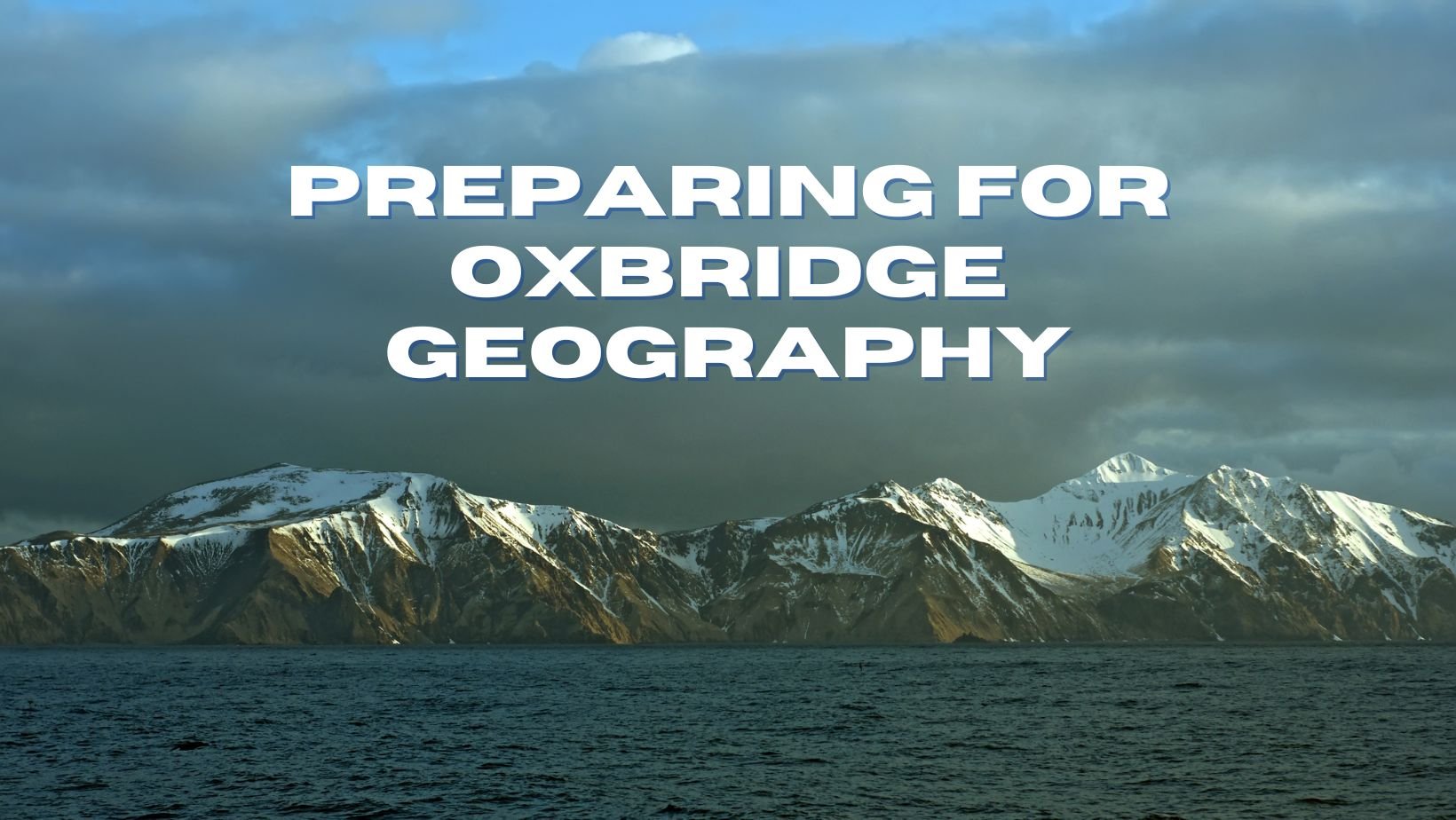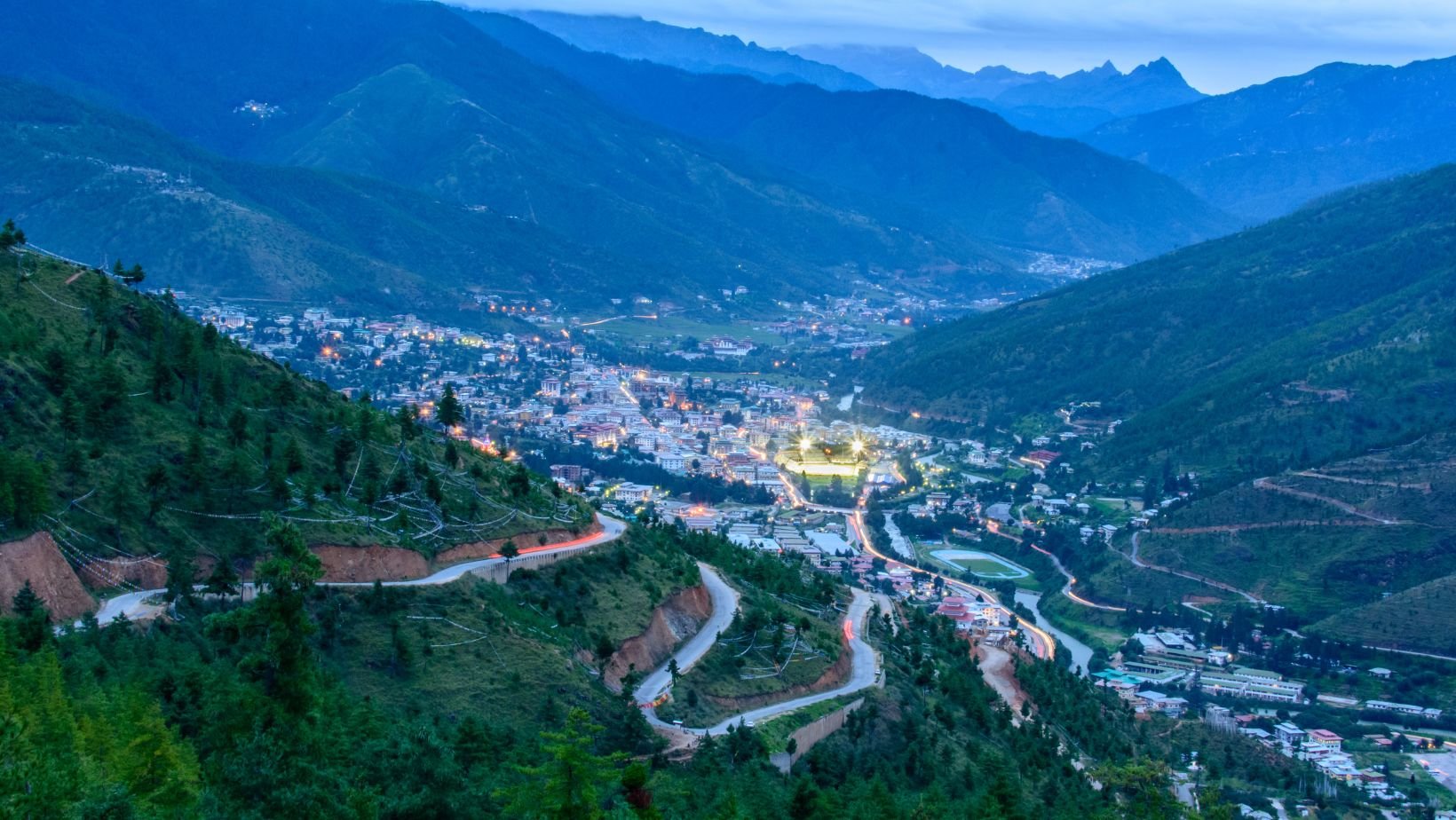A Complete Guide to Oxbridge Geography Applications in 2025
Everything you need to know applying to Oxbridge Geography
In this blog, U2’s Co-Founder, Ilana, a Geography Graduate from the University of Cambridge, leads you through what Geography at University involves, as well as her key recommendations for prospective Geography applicants who are starting to approach personal statement writing, and interview preparation.
What does Geography at University involve?
Before you embark on your Geography application, including personal statement writing, admissions test, and interview preparation, it is important to first understand what Geography at university is.
Simply put, Geography is the study of the Earth’s landscapes, peoples, places and environments. The following link from the Royal Geographical Society provides a useful set of sub-definitions. Check it out via this link here.
Task 1:
Try to create your own definition for Geography – this often comes up at interview, so it is worth preparing for!
Geography at university is very different from school geography. Whilst typical school level geography themes are to be found (e.g. environmental hazards, coastal management, industry and urban planning etc.), there is much that students are surprised by when they start the Oxford or Cambridge Geography course. For example, during the Geographical Tripos at Cambridge you could encounter discussions around the role of prostitutes and sexual deviants in shaping Victorian England, or consider the relationship between postmodernity and postmodernism, the relationship between food, famine and power in Africa, and the role of physical reflection qualities of water and soil types in remote sensing.
The breadth and depth of the Oxford and Cambridge Geography courses are great selling points. Geography students generally share a passion for seeing rigorous academic study interacting with issues and problems in the real world. The course is structured to both facilitate movement into the academic sphere, but just as importantly helps prepare undergraduates wanting to work in a variety of multi-disciplinary settings, where the skills acquired in the Oxford and Cambridge course can be ultimately utilised.
Skills-wise, the philosophy of the Oxford and Cambridge Geography Departments is to provide students with a multi-disciplinary set of tools to tackle problems. These include:
Logical and critical thinking skills
The ability to interpret texts
Computing skills
Numeracy
Practical skills
Graphical and design skills
Fieldwork experience
The ability to work under pressure
Task 2:
A) Start to Google the First Year modules of the Oxford and Cambridge course to get a flavour of what the course entails! Note all of the key attributes of the course!
B) Note down the important skills that you will acquire throughout the degree. You will need to evidence that you have the commitment and potential to hone these skills both within your personal statement and at interview.
Preparing a strong Geography personal statement
Broadly, Geography can be divided into Physical and Human topics. If you read around both areas, it will show admissions tutors and interviewers that on top of being interested in both realms of the discipline and are well placed to tackle the interdisciplinary nature of the course.
Below are some suggestions of what to read:
(a) Human Geography
Adams, W. M. (2008) Green Development 3rd edition. Routledge, London.
Cloke, P., Crang, P. and Goodwin, M. eds (2005) Introducing Human Geographies 2nd edition. Hodder Arnold, London.
Daniels, P., Bradshaw, M., Shaw, D. and Sidaway, J. eds (2008) An Introduction to Human Geography: Issues for the 21st Century. Prentice Hall, Harlow.
Dicken, P. (2007) Global Shift: Mapping the Changing Contours of the World Economy. Sage, London.
(b) Physical Geography
Christopherson, R. W. (2008) Geosystems: an introduction to physical geography 7th Edition. Prentice Hall, Harlow.
Holden, J. (2005) An introduction to physical geography and the environment. Prentice Hall, Harlow.
Keith, D. (2013) A Case for Climate Engineering.
You could also explore some of Oxford University’s Very Short Introductions: https://global.oup.com/academic/content/series/v/very-short-introductions-vsi/?cc=gb&lang=en&. Each volume provides an authoritative and engaging assessment of a concept, field, or body of work, drawing out the central ideas, themes, and approaches. Some of the titles relevant to Geography include:
Dodds, K. (2019) Geopolitics: A very short introduction, 3rd Edition. Oxford, OUP.
Ellis, E.C. (2018) Anthropocene: A very short introduction. Oxford, OUP.
Goudie, A. and Viles, H. (2010) Landscapes and Geomorphology: A very short introduction. Oxford, OUP.
Koser, K. (2016) International Migration: A very short introduction. Oxford, OUP.
Maslin, M. (2014) Climate Change: A very short introduction. Oxford, OUP.
Matthews, J. and Herbert, D. (2008) Geography: A very short introduction. Oxford, OUP.
Middleton, N. (2009) Deserts: A very short introduction. Oxford, OUP.
Redfern, M. (2003) The Earth: A very short introduction. Oxford, OUP.
As years go by, geographical theories are vastly affected – major world events play a key role in either disproving or advancing them. Therefore, up-to-date and recently published books and articles might be most useful for you to understand the geographical relevance of what is happening around you. Keep this in mind when considering whether to buy a book you see on the bookshelves!
Looking for ideas for personal statement content/ impressive talking points at interview?
We have built out an entire co-curricular platform, Minds Underground, for university applicants to use as evidence for their wider subject exploration. A few ideas:
Our Geography Summer School: With MU’s Geography experts, all educated at either Oxford or Cambridge, the Geography summer school provides a taster of University level concepts. Each session is designed to provide cutting-edge content which can be discussed in Geography personal statements and interviews. Engage with fellow thinkers, in a stimulating and challenging environment, to pave the way for a successful application
Research Projects: E.g. “A Project on the UK’s Carbon Emissions Footprint in the Global South with a Data Science Consultant & Cambridge PhD in Forest Ecology and Conservation”, or “Work with a Strategy Consultant Advising Industry Actors on The Circular Plastics Economy” (Typically 1 month project duration, with 5 project tutorial sessions)
Key current Geography topics/ debates to be aware of:
Climate change – think about personalities like Greta Thunberg
Environmental politics
Emerging world powers – consider the growth of India and China
The Future of Developing Regions
Cultural Differences
Geography terms to investigate
Anthropocene
Austerity
Biogeography
El Nino
Geographical Risk
Geopolitics
Glacier
Globalisation
Quaternary Environments
Sustainable Development
Top Tip:
If you have had enough of reading, why not try listening to an educational podcast? Try The Conversation , "an independent source of news and views, sourced from the academic and research community". It covers a diverse range of topics, many of which are of interest to geographers e.g. there are articles on the Water Crisis, Carbon Capture Methods etc. Check out our podcast page for more examples.
What is an Oxbridge Geography interview like?
The format of the interview at Oxford and Cambridge is not fixed. Every college has its own way of doing things. However, in most cases, successful candidates will have at least two interviews. One may be Human Geography focused, and the other Physical Geography focused. There may also be a more general interview in which you will meet a tutor that may not be from the Geography Department. U2 Tuition’s past successful Geography candidates have all been asked a mixture of:
1) General questions on their background, past academic performance, and achievements
2) In-depth analytical questions (sometimes based on an article or unseen additional material)
3) Statistical and data interpretation questions
4) Questions on their motivations, future plans, and aspirations
Example Oxford Geography interview question:
Background information
You are provided with an article called “Lighting & Power” that contains the following important background information:
In the UK, around 18% of the electricity generated by power stations is used to provide artificial lighting in buildings. In terms of “units” (KwH) of electricity, this is about 60 billion units a year. Electricity prices vary, but assuming a cost of 10p a unit, we can see that the UK spends around £6bn a year just on powering electric lighting - the bulbs, lamps and tubes cost extra
The carbon dioxide emissions associated with keeps the lights on amount to over 25 million tonnes a year
Electric lamps are far more efficient than their predecessors e.g. coal gas and paraffins, however any efficiency gains have been minor compared with the growth in demand for light. And, especially in the incandescent lamp, the ratio of visible light emission to heat emission remains low (on average, 7% of the electrical energy becomes light, 93% becomes heat). LED lights result in a ten-fold reduction in the energy used for household lighting. However, as the number of houses rise over the next few decades, the increased demand for lighting could offset some of the technological efficiency improvements.
Questions for discussion
The interviewer proceeds to ask you a number of different discussion questions in which you need to critically evaluate the information provided, and combine this with your existing knowledge to provide effective viewpoints:
1) To what extent does artificial lighting contribute to human development?
2) Are the levels of lighting we are used to in the UK necessary to sustain our development?
3) What levels of lighting do you think other people in the world should demand - especially in “developing” countries where there is not the same access to utilities?
4) How could a balance be achieved between making the best use of lighting and minimising greenhouse gas emissions?
Task 3
From what angle would you approach the above discussion questions?
What do you already know about the above topic, and how can you use the background information to strengthen and direct your answers?
Do you have any other examples e.g. from your reading, to back up your arguments?
How would you present your answers, in clear, logical stages?
How can you show you are aware of the wider implications of this topic?
Check out our Geography Interview Preparation guide to boost your chances of success. Gain insights into the Oxbridge Geography interview process from previously successful candidates, discover the different formats of interview, including personal statement / general interviews, in-depth analytical questions, and statistical and data interpretation questions, and practice responses to 60+ past interview questions. We include top tips on how to approach and structure your responses from U2’s Oxbridge Geography tutors.
For mock interview practice, enquire about our Oxbridge Geography interview days!
Looking for a Personal Statement Writing Tutor or Support For Your Wider Oxbridge Geography Application, including interviews?
U2’s Oxbridge-educated mentors have a close insight into what admissions tutors like to see in a Geography personal statement, and can help students to convey their skills, motivations, and long term goals, in order to stand out from other applicants. The statement should be the candidates own work, but our mentors will provide direction and guide you through the process of content building and writing. We offer offline drafting as well as tuition sessions.
Oxbridge Geography Mentoring
U2 offers TSA admissions test preparation (if applying to Geography at Oxford), as well as wider Oxbridge Mentoring programmes (book a free consultation to discuss options). We have a large team of Oxbridge-educated Geography mentors including 1st Class, Master’s and PhD level graduates.
The Process:
1) We suggest an Oxbridge Geography graduate as a tutor and send their full CV for review. Our tutors are deeply familiar with the admissions process to study Geography at the University of Oxford and Cambridge, and are well-placed to guide you through personal statement curation, the entrance exam and the interview process. We may suggest a range of application tutors to choose from with slightly differing rates depending on qualifications and level of experience.
2) We typically suggest beginning with a 1.5 hour informal assessment/ taster session, where the tutor will informally assess the student’s current performance level for application, including test and interview. Following this, we issue a report with feedback, and structure a plan to best prepare.
3) U2’s approach for regular Geography application sessions: The main focus of tutorial sessions will be to explore material that can be discussed in the personal statement and at interview - this may sometimes stretch from A-Level standard to First Year Undergraduate. Tutors ensure each student refines their interests within Geography, and is exposed to a range of approaches and new concepts, guiding students in their reading and wider subject exploration. Together, we build a case for the student, solidifying the stance and direction they will take during interview and honing skills for the admissions test if applicable.
Frequency of sessions can be decided between student and tutor. Students can take either ad hoc sessions, or we structure a full programme for preparation, which may include further co-curricular opportunities such as our research projects, Geography summer school and Oxbridge mock interview days. Honing the skills necessary to succeed for Oxbridge ideally requires long-term preparation and mentoring presents a wonderful opportunity to learn from some of the very best Oxbridge has produced. We also provide GCSE, A-Level or IB Geography support if needed.
Sessions from £75/h.








